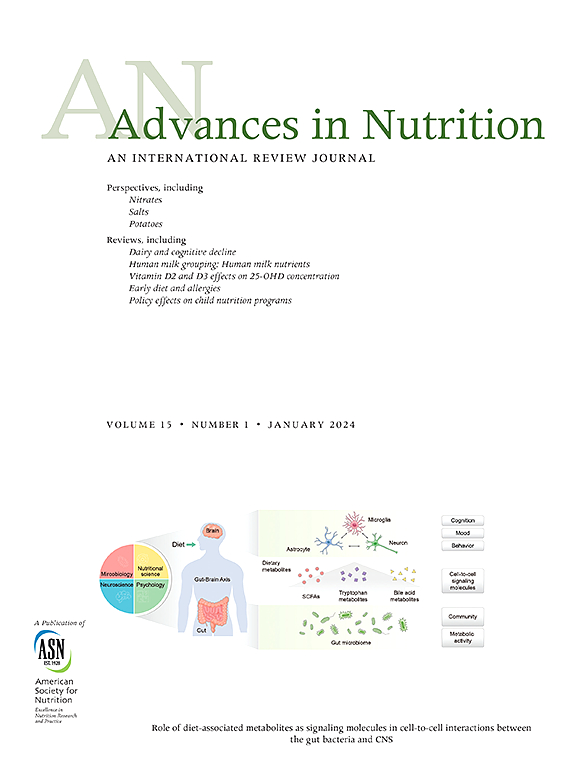观点:改善新生儿注册营养师的人员配置、利用和补偿。
IF 8
1区 医学
Q1 NUTRITION & DIETETICS
引用次数: 0
摘要
新生儿注册营养师(rdn)是多学科新生儿重症监护病房团队的重要成员,因为他们的专业营养知识和营养对高危婴儿的关键作用。新生儿RDN是唯一一个持续关注婴儿营养状况和营养护理的保健团队成员。他们提倡在查房时进行营养护理,并有效改善危重婴儿的营养和生长速度,这有助于降低保健费用。本文的目的是描述不充分的人员配置、利用和补偿是如何导致新生儿rdn离开他们的临床角色,并提出解决已确定问题的建议。美国儿科学会推荐专门的新生儿rdn;此外,在专业范围内需要增加新生儿rdn的人员配备,以支持最佳实践并填补预期的新生儿提供者短缺的空白。建议研究理想的新生儿RDN人员配置比例,以支持改善患者护理,专业发展和医院成本节约。新生儿rdn的充分利用可以通过增加专门用于婴儿/儿科服务的人员配备而不是与成人服务相结合来实现。RDN的职责,包括订购肠外和肠内营养以及管理婴儿营养准备区域,改善了患者护理并为新生儿RDN提供了职业发展机会。随着专业人员入职成本的增加,可能需要为新生儿注册护士提供足够的补偿,以继续吸引和留住该领域的熟练从业人员。将注册护士纳入集体谈判努力、建立职业阶梯和建立收费服务都是可以改善薪酬的策略。这些变化应该通过营养师、新生儿学家、临床营养管理人员和医院管理部门的共同努力来解决。本文章由计算机程序翻译,如有差异,请以英文原文为准。
Perspective: Improving Neonatal Registered Dietitian Nutritionist Staffing, Utilization, and Compensation
Neonatal registered dietitian nutritionists (RDNs) are vital members of the multidisciplinary neonatal intensive care unit team due to their professional nutrition expertise and the critical role of nutrition for high-risk infants. The neonatal RDN is the only health care team member who is continually focused on infants’ nutrition status and nutrition care. They advocate for nutrition care at medical rounds and effectively improve nutrition and growth rates of critically ill infants, which helps to reduce health care costs. The purpose of this article is to describe how inadequate staffing, utilization, and compensation are contributing to neonatal RDNs leaving their clinical roles and to suggest solutions to the identified issues. Dedicated neonatal RDNs are recommended by the American Academy of Pediatrics; additionally, increased staffing of neonatal RDNs is desired within the profession to support best practices and to fill gaps with anticipated neonatal provider shortages. Research into ideal neonatal RDN staffing ratios to support improved patient care, professional development, and hospital cost savings are recommended. Utilization of neonatal RDNs at their full scope of practice can be achieved with increased staffing dedicated solely to infant/pediatric services and not in combination with adult services. RDN responsibilities, including ordering parenteral and enteral nutrition and managing infant nutrition preparation areas, improve patient care and provides opportunities for career advancement for neonatal RDNs. With the increasing costs for professional entry, adequate compensation for neonatal RDNs will likely be required to continue to attract and retain skilled practitioners in the field. Incorporation of RDNs in collective bargaining efforts, creation of career ladders, and establishment of billable services are strategies that could improve compensation. These changes should be solved by the collective efforts of dietitians, neonatologists, clinical nutrition managers, and hospital administration.
求助全文
通过发布文献求助,成功后即可免费获取论文全文。
去求助
来源期刊

Advances in Nutrition
医学-营养学
CiteScore
17.40
自引率
2.20%
发文量
117
审稿时长
56 days
期刊介绍:
Advances in Nutrition (AN/Adv Nutr) publishes focused reviews on pivotal findings and recent research across all domains relevant to nutritional scientists and biomedical researchers. This encompasses nutrition-related research spanning biochemical, molecular, and genetic studies using experimental animal models, domestic animals, and human subjects. The journal also emphasizes clinical nutrition, epidemiology and public health, and nutrition education. Review articles concentrate on recent progress rather than broad historical developments.
In addition to review articles, AN includes Perspectives, Letters to the Editor, and supplements. Supplement proposals require pre-approval by the editor before submission. The journal features reports and position papers from the American Society for Nutrition, summaries of major government and foundation reports, and Nutrient Information briefs providing crucial details about dietary requirements, food sources, deficiencies, and other essential nutrient information. All submissions with scientific content undergo peer review by the Editors or their designees prior to acceptance for publication.
 求助内容:
求助内容: 应助结果提醒方式:
应助结果提醒方式:


